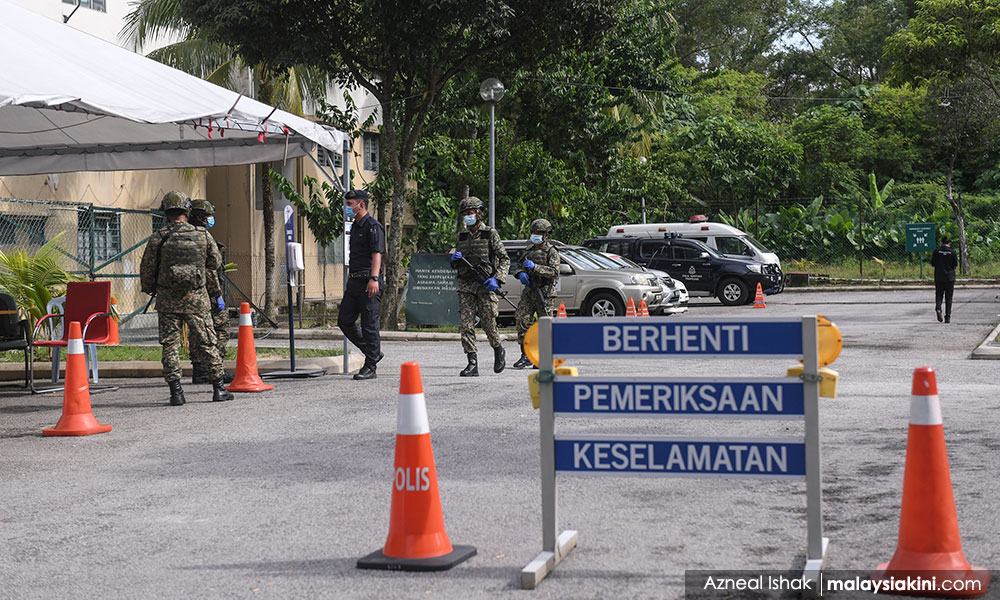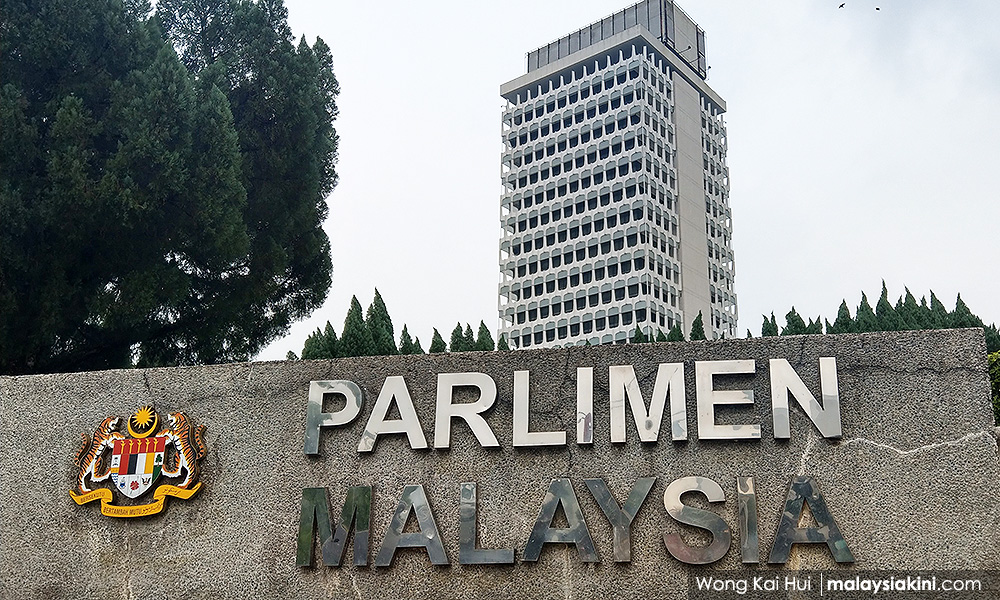Is the emergency proclamation truly justified? (Pt 2)
In Part 1 of this two-part essay, I looked at the various powers enacted under the Emergency (Essential Powers) Ordinance 2021 (“EO 2021”), which were issued subsequent to the proclamation of emergency.
These related to taking temporary possession of land, building or movable property; demand for the use of resources; the issuance of directions for treatment, immunisation, isolation, observation or surveillance; and certain registration requirements consequent on the deployment of doctors, dentists, pharmacists, allied health professionals, medical assistants, nurses, midwives, opticians/optometrists and estate hospital assistants.
I concluded that the essential powers granted under the EO 2021 in relation to these areas actually already exist within present legislation. In this second part of the essay, I will focus on the sections of the EO 2021 that deal with security and the constitution.
Section 2 of the EO 2021 provides for the creation of an independent special committee. If the intention behind the creation of this independent special committee is to include members of the parliamentary opposition into a bipartisan advisory body that would advise the Yang di-Pertuan Agong in a spirit of national unity, then certainly this has not been done.
Section 7 of the EO 2021 grants to the armed forces the same powers as allowed to the police under the Criminal Procedure Code. It is clearly stated that these powers are intended to be in addition to, and not in derogation of, the armed forces’ existing powers under the Armed Forces Act 1972. Under this Act, the term “armed forces” means the army, the navy and the air force.
It is my contention that a similar power would have been available to the “security forces” under Part V of the National Security Council Act 2016 (“NSC Act”). Under the NSC Act, the government could have declared a security zone in relation to each of the states and federal territories in Malaysia. This would have mimicked the infected local areas declared under the Prevention and Control of Infectious Diseases (Declaration of Infected Local Areas) Order 2020 (“Order”), made pursuant to the Prevention and Control of Infectious Diseases Act 1988 (the “1988 Act”).
Each security zone could then be separately managed, just as how the Covid-19 conditions are managed state by state. The NSC Act gives power to a director of operations to mobilise the security forces (here defined as the armed forces, the police, police reserve and auxiliary police, and the Maritime Enforcement Agency, so the ambit is wider) to secure the security zone. This includes the power to control movement and roads and the power of arrest, search and seizure.
Interestingly, the powers under the NSC Act include the power to take temporary possession of lands, buildings and movable property, and the power to demand for the use of resources. These are the very same headings as we saw in Part I for Sections 3 and 4 of the EO 2021. In fact, if one were to compare the powers of a director of operations of a security zone declared under the NSC Act, they are very similar to what is contained in the EO 2021. These, in turn, are similar to the range of directions that the minister of health or director-general of health could issue under the 1988 Act, but at a higher and more coordinated level.

Indeed, it is my contention that utilising the NSC Act would have been a more comprehensive and a ready-made solution to addressing the Covid-19 pandemic since it clearly sets out the role of the National Security Council (“NSC”) itself. The NSC has the power to give directions to all government entities (defined as the security forces and including all ministries, departments, agencies, etc. of both the federal and state governments and all local authorities).
Under the present regime, it is not clear which is the ultimate executive authority controlling the country; is it the cabinet or the NSC?
This thus begs the question: why did the government not use the NSC Act 2021? After all, a declaration of a security zone under the NSC Act does not require the consent or agreement of the Yang di-Pertuan Agong.
The inescapable answer is that a declaration of a security zone, or 16 security zones covering all of Malaysia state by state and federal territory by federal territory, is not covered by Article 150 of the Federal Constitution. It would not have allowed for the overriding of the fundamental liberties and protections set out in the Federal Constitution. And, much more critically, it would not have allowed for the setting aside of Parliament and elections.
Inescapable conclusion
Section 11 of the EO 2021 deals with executive and legislative powers. The way in which Section 11 is drafted is quite odd. Taken literally, it means that there can be no change in the prime minister and members of the cabinet, and no change in the menteri besar, the chief minister and members of the state executive council or state cabinet.
The language of the EO 2021 has been drafted in such a way that the individuals holding these offices are, by law, to remain unchanged for as long as the proclamation of emergency remains in force. This is highly unique and hints at other possible motives at work.
The overall conclusion that one inescapably arrives at, looking at the various sections of the EO 2021 referred to above, is that the essential powers sought are wholly unnecessary. A similar framework to meet the pandemic head-on could have been achieved through the utilisation of a different choice of security-related legislation.
The main difference between the choice made by the present government, namely to advise the Yang di-Pertuan Agong to issue a proclamation of emergency, and the less draconian approach of declaring multiple security zones under the NSC Act, is the fact that the NSC Act would not have given the government the power to then publish the EO 2021 and to include within that Sections 12, 13, 14 and 15 to delay the elections at the Parliament and the state legislative assemblies, and to stop the Parliament and the state legislative assemblies from being convened.
As if to address this concern, the prime minister went on national television on Feb 4, 2021, to assure the nation that Parliament will be dissolved once the Covid-19 situation is brought under control and the proclamation of emergency revoked. Under Article 43(4) of the Federal Constitution, an outgoing prime minister may only advise the Yang di-Pertuan Agong to dissolve Parliament.

However, the Federal Constitution is absolutely and unquestionably clear that it is wholly within the sole discretion of the Yang di-Pertuan Agong whether or not to accept the advice of the prime minister in this regard. The Yang di-Pertuan Agong may, in his singular wisdom, choose to ignore the advice of the prime minister and to invite another member of the Dewan Rakyat to try to form a government.
That the prime minister said what he did on national television on Feb 4 is, with respect, not within the power of the prime minister. It is a usurpation of the rights and privileges and a taking for granted of the exercise of discretion by the Yang di-Pertuan Agong, something that the prime minister is in no legal or constitutional position to do.
Based on this two-part review of the provisions of the EO 2021, it is once again my respectful submission that the proclamation of emergency was not, and continues not to be, justified. As I mentioned in the first part of this essay, what perhaps is required is for a greater and more aggressive and extensive utilisation of the existing powers under existing legislation. There could also be better coordination to arrive at a whole-of-government approach, principally led by medical experts and professionals, and based on medically-related priorities.
Before I conclude, I would like to make a comment about those who would threaten persons who call into question the proclamation of emergency, saying that as this had been decided upon and declared by the Yang di-Pertuan Agong, it should not be questioned.
Section 4(2) of the Sedition Act 1948 clearly states that, “[…] an act, speech, words, publication or another thing shall not be deemed to be seditious by reason only that it has a tendency – (a) to show that any ruler has been misled or mistaken in any of his measures; (b) to point out errors or defects in any Government or constitution as by law established […] or in legislation or in the administration of justice with a view to the remedying of the errors or defects […] if the act, speech, words, publication or other thing has not otherwise, in fact, a seditious tendency.
This two-part essay is offered on the bases of these two legal provisions.
Read Part 1 here.
ANDREW KHOO is an advocate and solicitor in private practice. He is co-chair of the Bar Council’s Constitutional Law Committee but writes here in his personal capacity. - Mkini
The views expressed here are those of the author/contributor and do not necessarily represent the views of MMKtT.
✍ Credit given to the original owner of this post : ☕ Malaysians Must Know the TRUTH
🌐 Hit This Link To Find Out More On Their Articles...🏄🏻♀️ Enjoy Surfing!




















Post a Comment